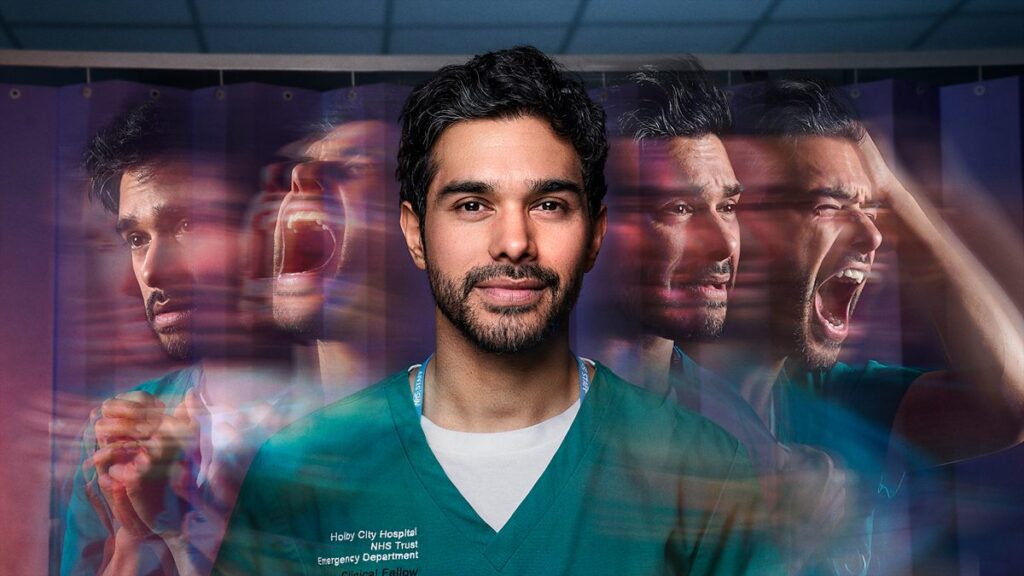“Casualty,” the British medical drama, has been a staple of television since its debut in 1986. The show, produced by the BBC, has garnered a massive following and holds the distinction of being the longest-running emergency medical drama series in the world. Set in the fictional Holby City Hospital, “Casualty” presents the fast-paced and often dramatic lives of the emergency department staff and their patients. The show’s blend of medical emergencies, personal stories, and social issues has made it a beloved series for over three decades.
Table of Contents
The Origin of Casualty
“Casualty” was created by Jeremy Brock and Paul Unwin, who aimed to bring a realistic portrayal of hospital life to television. The show’s creators wanted to highlight the challenges faced by healthcare professionals and the impact of social issues on the health service. The first episode aired on September 6, 1986, and it quickly became apparent that the series would resonate with viewers.
From its inception, “Casualty” set out to be more than just a medical drama. It aimed to reflect real-life issues and provoke thought and discussion among its audience. The creators’ commitment to authenticity and social commentary helped “Casualty” stand out in a crowded television landscape.

Evolution Over the Years
Over the years, “Casualty” has evolved significantly, both in terms of its storytelling and production values. The show has seen numerous cast changes, with many actors coming and going. Despite these changes, “Casualty” has maintained its core focus on the lives of its characters and the medical emergencies they face.
The series has also adapted to changes in television production and audience expectations. Early episodes were shot on film, giving the show a distinctive look. In the 2000s, “Casualty” transitioned to high-definition digital production, enhancing the visual quality and allowing for more dynamic camera work. This technical evolution has helped keep the show fresh and engaging for new generations of viewers.
Key Characters and Storylines
“Casualty” has introduced audiences to a vast array of characters, each bringing their own unique stories and challenges. From the stoic and dependable paramedic Jeff Collier to the compassionate and dedicated nurse Charlie Fairhead, the characters of “Casualty” have left a lasting impression on viewers. The show has not shied away from difficult topics, often incorporating storylines that address pressing social issues such as mental health, domestic abuse, and the challenges faced by the NHS.
One of the most memorable storylines in “Casualty” history is the tragic death of paramedic Jeff Collier in 2014. This storyline not only provided a dramatic and emotional moment for the show but also highlighted the dangers faced by emergency service workers. Another significant storyline was the depiction of mental health struggles faced by healthcare professionals, exemplified by the character Dr. Dylan Keogh, who battles with obsessive-compulsive disorder (OCD).
Impact on Viewers and Society
“Casualty” has had a profound impact on its viewers and society at large. By tackling real-life issues, the show has raised awareness and sparked conversations about important topics. For example, episodes dealing with mental health have helped destigmatize mental illness and encouraged viewers to seek help. Similarly, storylines about domestic abuse and addiction have brought attention to these issues and the support available for those affected.
The show’s commitment to realism and social relevance has earned it critical acclaim and numerous awards. “Casualty” has been praised for its accurate portrayal of medical procedures and the emotional depth of its characters. The series has also received recognition for its efforts to reflect the diversity of British society, both in its cast and its storylines.
Behind the Scenes
The production of “Casualty” involves a dedicated team of writers, directors, producers, and medical advisors who work tirelessly to ensure the show’s authenticity and quality. The writers often consult with medical professionals to ensure that the medical procedures and terminology used in the show are accurate. This attention to detail helps to create a realistic and immersive viewing experience.
The show’s directors and producers also play a crucial role in bringing the scripts to life. They work closely with the actors to ensure that the emotional and dramatic moments are portrayed convincingly. The set design and special effects teams also contribute to the show’s realism, creating convincing medical emergencies and hospital settings.

Casualty’s Legacy
“Casualty” has left an indelible mark on the landscape of British television. Its longevity is a testament to its ability to evolve and remain relevant to contemporary audiences. The show has also paved the way for other medical dramas, both in the UK and internationally. Its spin-off series, “Holby City,” which aired from 1999 to 2022, further expanded the fictional universe of Holby City Hospital and attracted its own dedicated fanbase.
The legacy of “Casualty” is also evident in the careers it has launched. Many actors who appeared on the show have gone on to achieve significant success in other television series and films. The show’s commitment to showcasing diverse talent has helped to launch the careers of many actors from underrepresented backgrounds.
Current State and Future Prospects
As of 2024, “Casualty” continues to be a popular fixture on BBC One. The show has adapted to changes in the television industry, embracing digital platforms and social media to engage with a wider audience. The series has also continued to innovate in its storytelling, exploring new medical and social issues while maintaining the emotional core that has endeared it to viewers for so long.
Looking to the future, “Casualty” is well-positioned to continue its legacy of excellence and relevance. The show’s producers are committed to keeping the series fresh and engaging, introducing new characters and storylines that reflect the ever-changing world of healthcare. As long as there are stories to tell about the triumphs and challenges of medical professionals, “Casualty” will remain a beloved and essential part of British television.
Conclusion
“Casualty” stands as a shining example of the power of television to entertain, inform, and inspire. Its unique blend of medical drama, social commentary, and compelling characters has made it a beloved series for over three decades. As it continues to evolve and adapt, “Casualty” remains a testament to the enduring appeal of quality storytelling and the importance of addressing real-life issues through the medium of television.

FAQs
What is “Casualty”?
“Casualty” is a British medical drama series that follows the lives of staff and patients in the emergency department of the fictional Holby City Hospital.
When did first air?
“Casualty” first aired on September 6, 1986.
Who created ?
“Casualty” was created by Jeremy Brock and Paul Unwin.
What makes unique?
“Casualty” is unique for its realistic portrayal of medical emergencies, its focus on social issues, and its long-running success as the world’s longest-running emergency medical drama series.
What are some memorable storylines ?
Memorable storylines include the tragic death of paramedic Jeff Collier and the depiction of mental health struggles faced by Dr. Dylan Keogh.
How has impacted viewers?
“Casualty” has raised awareness about important social issues, destigmatized mental illness, and sparked conversations about the challenges faced by healthcare professionals.
What is the future “?
The future of looks bright, with continued innovation in storytelling and a commitment to reflecting contemporary issues and diverse perspectives.
How has influenced other medical dramas?
“Casualty” has paved the way for other medical dramas, inspiring spin-offs like “Holby City” and influencing the genre both in the UK and internationally.
Who are some notable actors ?
Many actors have launched successful careers after appearing on benefiting from the show’s commitment to showcasing diverse talent.
Why is still popular after all these years?
Remains popular due to its ability to evolve with the times, its engaging and realistic storytelling, and its focus on important social and medical issues.


